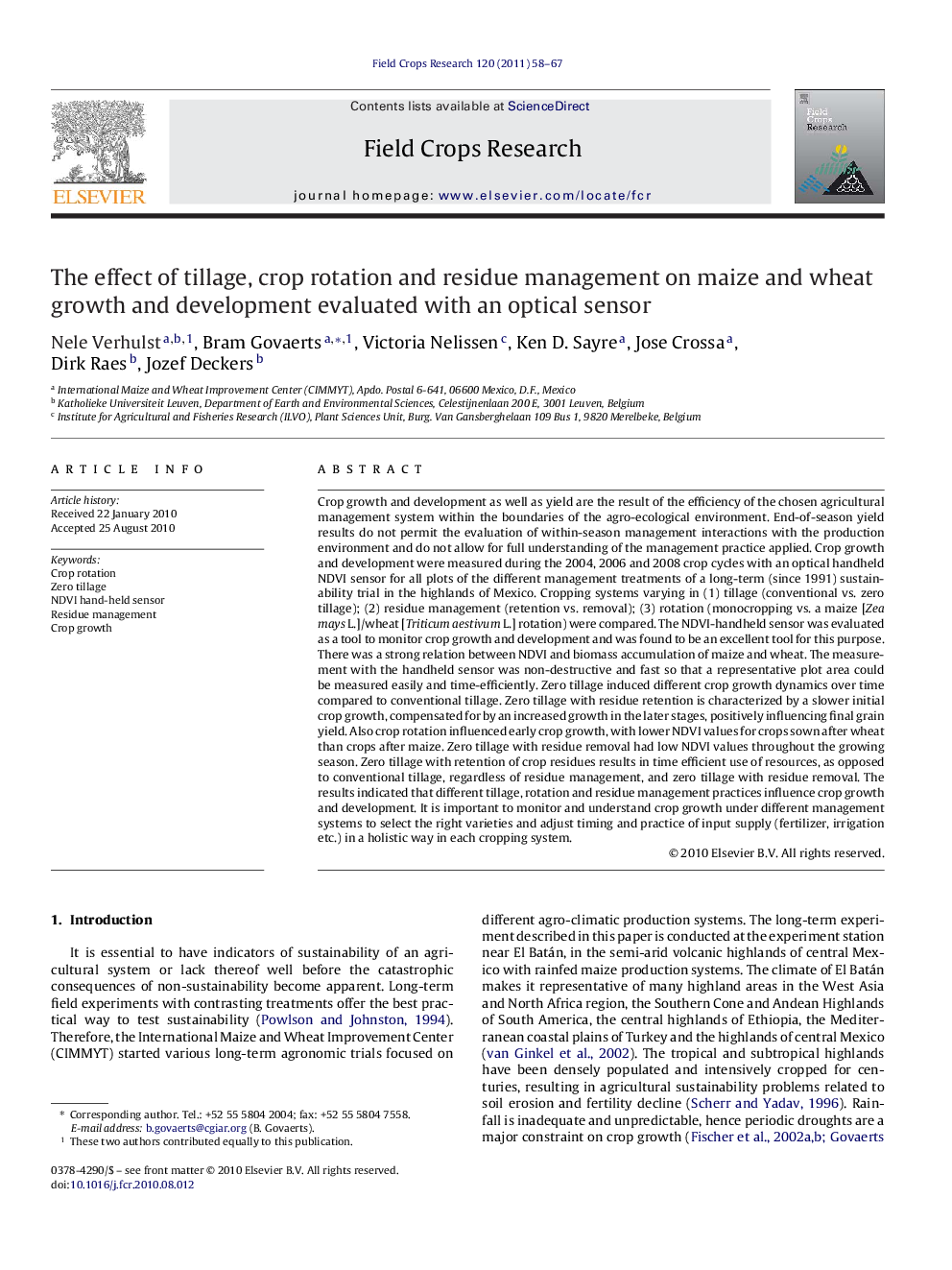| کد مقاله | کد نشریه | سال انتشار | مقاله انگلیسی | نسخه تمام متن |
|---|---|---|---|---|
| 4510865 | 1321879 | 2011 | 10 صفحه PDF | دانلود رایگان |

Crop growth and development as well as yield are the result of the efficiency of the chosen agricultural management system within the boundaries of the agro-ecological environment. End-of-season yield results do not permit the evaluation of within-season management interactions with the production environment and do not allow for full understanding of the management practice applied. Crop growth and development were measured during the 2004, 2006 and 2008 crop cycles with an optical handheld NDVI sensor for all plots of the different management treatments of a long-term (since 1991) sustainability trial in the highlands of Mexico. Cropping systems varying in (1) tillage (conventional vs. zero tillage); (2) residue management (retention vs. removal); (3) rotation (monocropping vs. a maize [Zea mays L.]/wheat [Triticum aestivum L.] rotation) were compared. The NDVI-handheld sensor was evaluated as a tool to monitor crop growth and development and was found to be an excellent tool for this purpose. There was a strong relation between NDVI and biomass accumulation of maize and wheat. The measurement with the handheld sensor was non-destructive and fast so that a representative plot area could be measured easily and time-efficiently. Zero tillage induced different crop growth dynamics over time compared to conventional tillage. Zero tillage with residue retention is characterized by a slower initial crop growth, compensated for by an increased growth in the later stages, positively influencing final grain yield. Also crop rotation influenced early crop growth, with lower NDVI values for crops sown after wheat than crops after maize. Zero tillage with residue removal had low NDVI values throughout the growing season. Zero tillage with retention of crop residues results in time efficient use of resources, as opposed to conventional tillage, regardless of residue management, and zero tillage with residue removal. The results indicated that different tillage, rotation and residue management practices influence crop growth and development. It is important to monitor and understand crop growth under different management systems to select the right varieties and adjust timing and practice of input supply (fertilizer, irrigation etc.) in a holistic way in each cropping system.
Journal: Field Crops Research - Volume 120, Issue 1, 14 January 2011, Pages 58–67